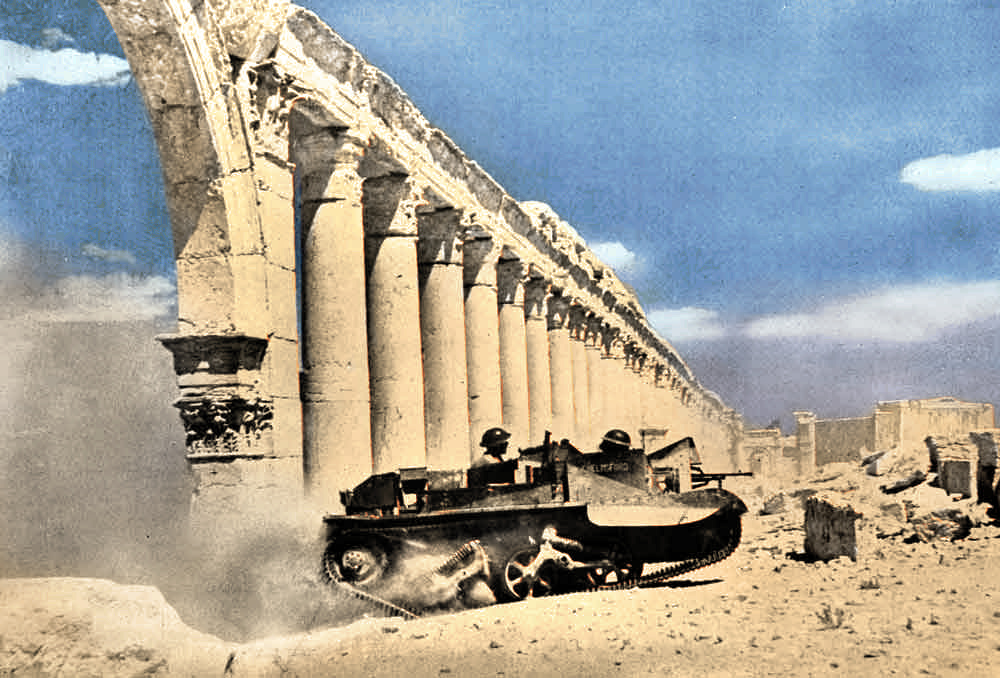U.S. Department of State (August 1, 1941)
740.0011 European War 1939/13602: TelegramThe Consul General at Beirut to the Secretary of State
Beirut, July 27, 1941 — 10 a.m.
[Received August 1 — 11:25 a.m.]
313.General de Gaulle asked me to call on him yesterday afternoon as we had not had an opportunity to talk much at the reception and he was leaving for Damascus today.
He began by saying that the Free French were here to uphold and continue the rights of France in the Levant. This was generally understood and approved not only by the British but also by the Syrians and Lebanese. He had received the necessary assurances from the British Government and quite recently these assurances were renewed and confirmed. However, he had observed that while men like Churchill and Eden seem to understand the situation thoroughly, there was evidence of less comprehension on the part of some of the British military authorities in the Middle East. He regretted this because it rendered the principal task a little more difficult. Few people seemed to realize he had to watch public opinion in France most carefully in order to counteract German propaganda that the Free French movement was merely a tool of the British (I gathered from the tone and manner in which he said this that he wished to convey the thought that occasionally he had to appear less disposed toward the British than he personally felt because everything he said and did had its reaction among the French people). I thanked the General for taking me into his confidence in connection with a matter which was extremely delicate but which all of us had so much at heart. I said I hoped he realized that in the Levant he found himself in an atmosphere of characteristically oriental intrigue and that he would not take too seriously the multifarious accusations, denunciations, innuendos, et cetera, which had doubtless already come to his ears. There were a great many people in Syria and the Lebanon who would like nothing better than to see serious friction develop between the Free French and the British quite apart from a relatively numerous group who were either in Axis pay or had pro-German sympathies and would therefore take advantage of every opportunity to sow discord and suspicion.
It seemed to me, I said, there was one — and perhaps only one — solid tongue which could provide a common starting point for everybody right now, whether French or British, Christian or Muslim or any other nationality or race, and that was the immediate necessity of defense. For the present nothing mattered except the purely physical and strategic position of keeping the Axis out of Syria. And in so far as the situation in Syria was linked up with Britain’s general war effort and could be made to contribute to the overthrow of Hitlerism and any other reason to think of direct interests and concern to the American Government and people.
I therefore ventured to hope that neither his relations with the British nor the admittedly complex and trying relationships of both occupying forces with the natives would be permitted to impede the military effort of the Allies. I did not mean that political problems should not be discussed even now especially as everybody was agreed that Syria and the Lebanon were entitled to independence. But it was futile to allow political schemers to stir up internal dissensions while the present potentially dangerous situation continued, for not only would it be playing into Hitler’s hands but it would jeopardize the very existence and integrity of the territories for whose independence the same politicians profess so much solicitude.
General de Gaulle said he was in entire accord with me but it remained to be seen whether it would prove practicable to postpone indefinitely the implementation of certain political promises which had been made to the natives. I replied the essential thing was that they should temporarily be relegated to the background and that irrevocable commitments should as much as possible be avoided before the successful conclusion of the war.
Repeated to London and Cairo.
ENGERT
